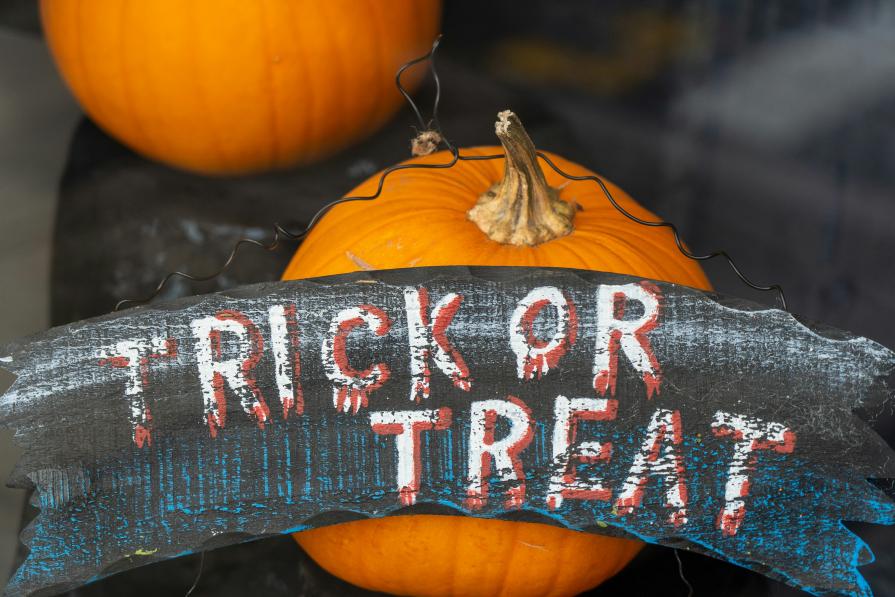Halloween is celebrated in many countries around the world today. And it was not invented in the United States, as many people think! Today let's take a look at where everything came from, how the traditions arose, what are the customs of the holiday and whether it is worth carving pumpkins and dressing up in all sorts of monsters on October 31.
History
The word "Halloween" itself comes from the expression All Hallow's Eve, which directly translates to "All Hallow's Eve." Initially, the holiday appeared among the ancient Celts: they celebrated the harvest in this way and at the same time remembered all those who passed away. But interaction with the afterlife is always a dangerous process, so the Celts began to put on masks so that the spirits would not recognize them and do them no harm. For the first time, costumes "as for a holiday" began to be worn in Scotland only in 1895, at the same time children began their "candy pilgrimage" to their homes.
The birthplace of the holiday, by the way, is the territory of modern Ireland.
On November 1, the Celts celebrated the New Year, and October 31 was reserved for Samhain. On this day, according to legends, the border between the world of the dead and the world of the living becomes very thin, the souls of the dead return to our mortal earth, so you need to protect yourself from them with sacred bonfires, sacrifices and fortune-telling on cards (someone believes that such Druidic divination much later resulted in the tradition of Tarot).
The confusion of Samhain and the Day of Remembrance of Martyrs and Saints occurred later, when the Roman Empire took over the Celtic lands. Traditions were mixed, Christianity gradually flowed into the business, and now we have such an intricately tailored holiday as Halloween.
Main traditions of the holiday
- A carved pumpkin with a candle inserted inside, of course! Originally, by the way, the Jack-o-Lantern (that's the name of such a lantern) was made of turnips.
- Costumes. The first ones were just animal skins and, excuse me, their heads. They say that in this way the spirits will not understand that there are people in front of them, and will not bother them with their problems.

- Trick or Treat: A treat or a prank, "sweet or bad." It is believed that this tradition has existed in Europe since the Dark Ages: the poor knocked on the doors of houses and offered to pray for their deceased, and the residents of the houses thanked them with provisions. There were even special soul cakes — pies for the soul, instead of which they now make do with a handful of sweets.
- Black cats. True queens of the holiday! Unfortunately, in medieval Europe, they were not welcomed: it was believed that the black purr invariably accompanied the witch, or even the witch herself, who had turned into an animal, ran across the road solely for the misfortune of a passer-by, etc. But where there is a cat, there is a witch, where there is a witch, there are Halloween horror stories!

- Witches are, in principle, the heroines of the holiday. In general, the English word witch comes from wicce, which can be translated as "wise woman". But those were the days of the dominion of the church, which women, especially intelligent ones, were never particularly fond of, so they gave the word a dark, negative connotation.
- Bonfires, and the more the merrier. In general, according to the classics, it is bonfire, also known as bone fire, that is, "bonfire of bones" - animals that were sacrificed during Samhain. Now, of course, animal cruelty is not at all welcome, so a good old wood fire will do.
How Halloween is celebrated now
Oddly enough, in most countries, Halloween is a deeply family holiday. Everyone prepares costumes and dresses up, children go to the neighbors and ask for sweets, return to the lavishly decorated house, and all together gorge themselves on delicacies at a set table. The streets are decorated, brightly lit, costumes and masks are everywhere, lanterns are hung, and games and bonfires (safe!) are found almost everywhere.
What features of Halloween can be found in different countries?
- Mexico. Okay, it's not exactly Halloween, but the essence is similar. Almost the main holiday of the Mexican calendar is the Day of the Dead, Día de los Muertos. On this day, everyone visits the graves of the deceased and pays tribute to ancestors, relatives and friends, and then goes to have fun on the city carnival streets, create flower altars and treat themselves to ceremonial dishes.

- Germany. It is customary to hide all the knives in the house: what if evil spirits find them!
- English-speaking countries are England, Canada, and the United States. One of the brightest holidays of the year! It is celebrated in the same way as we outlined above – all the brightest, most noticeable, well-known traditions that we associate with October 31 today, we most likely learned from there.
- China, France, Australia. Here, Halloween is not so popular, but gradually it captures many people. Themed parties are often arranged, young people gather to relax together, many decorate their homes or come up with intricate costumes.
In principle, if we do not treat it excessively religiously, then Halloween has the right to live in our country. After all, it's another opportunity to meet up with friends, cook something delicious and different, and have a lot of fun!
Do you celebrate Halloween?





